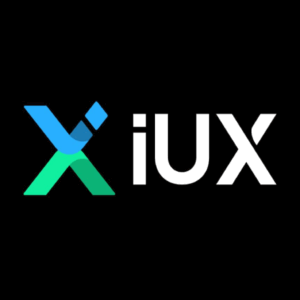
The Foundation of Islamic Forex
Islamic forex accounts, also known as swap-free accounts, are specifically designed to comply with Islamic financial principles. These accounts eliminate the conventional interest-based swap fees that occur in regular forex trading, making them halal (permissible) for Muslim traders.
Historical Development
The evolution of Islamic forex trading has been remarkable:
- Early 2000s: First introduction of swap-free accounts
- 2010-2015: Rapid expansion of Islamic forex services
- 2015-2020: Integration of advanced trading technologies
- 2020-Present: Enhanced regulatory framework and standardization
Top Islamic Forex Brokers for 2025
Let’s examine the leading Islamic forex brokers in detail, exploring their unique offerings, strengths, and considerations for Muslim traders:
Islamic Forex Broker Comparison
Select two brokers to compare their features
1. Vantage Forex Islamic Account
Vantage has established itself as a pioneer in Islamic forex trading, combining technological innovation with strict Shariah compliance. Their Islamic trading environment stands out for its comprehensive approach to eliminating interest-based transactions while maintaining competitive trading conditions.
The broker’s dedication to Islamic finance principles is evident in their specially designed administrative structure, which completely eliminates swap fees without compromising trading efficiency. Muslim traders particularly appreciate Vantage’s transparent fee structure, which clearly outlines all costs upfront, ensuring compliance with Islamic financial principles.
Key Features:
- Minimum Deposit: $200
- Spreads from: 0.0 pips
- Maximum Leverage: 1:500
- Platforms: MT4, MT5, WebTrader
Islamic Account Specifics:
- No swap fees on any instruments
- Dedicated Islamic account managers
- 24/5 customer support
- Multiple base currencies available
- Advanced technical analysis tools
What sets Vantage apart is their robust educational ecosystem specifically designed for Islamic traders. They offer regular webinars focusing on Shariah-compliant trading strategies and provide personal account managers who understand both the technical aspects of forex trading and Islamic financial principles.
2. HotForex Islamic Account
HotForex has developed one of the most comprehensive Islamic trading programs in the industry, demonstrating a deep understanding of Muslim traders’ needs. Their Islamic account structure was developed in consultation with Islamic finance experts, ensuring adherence to Shariah principles while delivering a superior trading experience.
The broker’s commitment to the Islamic trading community is reflected in their extensive Arabic language support and region-specific payment solutions. They’ve also implemented a unique fee structure that replaces traditional swap fees with transparent administrative costs, making it easier for traders to manage their expenses while staying compliant with Islamic law.
Key Features:
- Minimum Deposit: $100
- Spreads from: 0.1 pips
- Maximum Leverage: 1:400
- Platforms: MT4, MT5, WebTrader
Special Features:
- Zero commission on major pairs
- Islamic multi-currency accounts
- Educational resources in Arabic
- Regional payment methods
- Premium Islamic account options
HotForex’s Islamic account stands out for its institutional-grade liquidity and execution speed, crucial factors for active traders. Their multi-tiered account structure allows traders to choose the level of service that best matches their trading volume and experience, while maintaining Shariah compliance across all account types.
3. Turnkey Forex Islamic Account
Turnkey Forex has earned recognition for their commitment to authentic Islamic trading principles, backed by comprehensive Shariah board certification. Their Islamic account framework goes beyond simply removing swap fees – they’ve redesigned their entire trading infrastructure to ensure compliance with Islamic finance principles at every level.
The broker’s approach to Islamic trading emphasizes transparency and education, with a strong focus on helping traders understand how their trading activities align with Islamic principles. Their customer support team includes specialists in Islamic finance who can address both technical and religious compliance questions.
Key Features:
- Minimum Deposit: $100
- Spreads from: 0.1 pips
- Maximum Leverage: 1:500
- Platforms: MT4, WebTrader
Notable Aspects:
- Full Shariah compliance certification
- Dedicated Islamic account support
- Multiple account types
- Regular market analysis
- Mobile trading support
Turnkey Forex distinguishes itself through its comprehensive approach to Islamic trading education, offering regular workshops and seminars focused on Shariah-compliant trading strategies. Their platform includes specialized tools and indicators designed specifically for Islamic traders, helping them make informed decisions while maintaining religious compliance.
4. XM Islamic Account
XM has revolutionized Islamic forex trading by making it accessible to traders of all levels through their ultra-low minimum deposit requirement. Their Islamic account structure has been carefully designed to accommodate both newcomers and experienced traders while maintaining strict adherence to Shariah principles.
The broker’s innovative approach to Islamic trading includes a sophisticated pricing model that eliminates traditional swap fees while keeping overall trading costs competitive. They’ve also developed specialized educational resources that bridge the gap between modern trading techniques and Islamic financial principles.
Key Features:
- Minimum Deposit: $5
- Spreads from: 0.6 pips
- Maximum Leverage: 1:888
- Platforms: MT4, MT5, WebTrader
Islamic Trading Benefits:
- Ultra-low minimum deposit
- Competitive spread structure
- Multiple account levels
- Advanced trading tools
- Educational resources in multiple languages
XM’s Islamic account offering is particularly noteworthy for its scalability – as traders grow their accounts, they can access additional features and benefits while maintaining Shariah compliance. Their multi-lingual support team includes experts in Islamic finance, ensuring that traders receive appropriate guidance regardless of their location or language preference.
Each of these brokers has demonstrated a strong commitment to serving the Islamic trading community, but they differ in their specific strengths and focus areas. Vantage excels in technology and education, HotForex in regional customization, Turnkey Forex in religious compliance documentation, and XM in accessibility and scalability. Traders should carefully consider their individual needs and trading goals when selecting an Islamic forex broker, paying particular attention to factors such as:
- The transparency and structure of administrative fees
- Quality and availability of educational resources
- Level of customer support and Islamic finance expertise
- Trading platform stability and features
- Regional accessibility and payment options
Deep Dive into Swap Fees
Understanding swap fees is crucial for comprehending why Islamic forex accounts are necessary and how they differ from conventional trading accounts.
What Are Swap Fees?
Swap fees, or rollover fees, are interest charges that occur when positions are held overnight in forex trading. These fees are based on the interest rate differential between the two currencies in a trading pair.
Traditional Swap Fee Calculation
In conventional forex accounts, swap fees are calculated as follows:
Swap Fee = (Interest Rate Differential × Position Size × Pip Value) / 365
Principles of Islamic Finance in Forex
Islamic forex traders must adhere to specific principles that make their trading activities compliant with Islamic law:
- No Interest (Riba)
- Immediate Execution
- Clear Trading Costs
- Transparent Trading Conditions
Understanding No Interest (Riba)
The prohibition of Riba (interest) stands as the cornerstone of Islamic finance principles in forex trading. In conventional forex trading, when positions are held overnight, traders either pay or receive swap interest based on the interest rate differential between two currencies. This practice is strictly forbidden under Islamic law as it constitutes Riba. Islamic forex brokers have developed innovative solutions to address this challenge by implementing alternative fee structures that comply with Shariah law. Instead of interest-based swap fees, they may charge predetermined administrative fees or slightly adjusted spreads that are clearly defined upfront. This ensures that any costs associated with holding positions are based on legitimate services rendered rather than interest accumulation.
The Importance of Immediate Execution
Immediate execution is fundamental to Islamic forex trading because it aligns with the principle of certainty in transactions required by Islamic law. When a trade is executed immediately, both parties have clear knowledge of the exact price and conditions at the moment of transaction, eliminating any uncertainty or speculation (Gharar) that might make the trade impermissible. Islamic forex brokers must ensure their trading platforms provide real-time execution without artificial delays or price manipulations. This principle also extends to the concept of spot trading, where currency exchanges should occur on a same-day basis whenever possible, reflecting the authentic nature of the transaction.
Clarity in Trading Costs
Clear trading costs represent another crucial aspect of Islamic forex trading. All fees, commissions, and charges must be explicitly stated and agreed upon before trading begins. This transparency requirement stems from the Islamic principle of mutual consent in business transactions. Islamic forex accounts typically structure their costs through:
- Fixed commission rates per trade
- Pre-determined administrative fees
- Clearly defined spread markups
- Documented handling charges Each cost component must serve a legitimate purpose and be directly related to actual services provided, rather than being a disguised form of interest or speculative profit.
Maintaining Transparent Trading Conditions
Transparent trading conditions go beyond mere cost disclosure – they encompass the entire trading relationship between the broker and the trader. Islamic forex brokers must maintain complete transparency in several key areas:
Market Pricing
All price quotes must reflect real market conditions without manipulation or artificial delays. The pricing mechanism should be clearly explained to traders, including how spreads are calculated and applied to different trading instruments.
Risk Management
Brokers must provide clear information about their risk management policies, including:
- Margin requirements
- Stop-out levels
- Leverage limitations
- Position sizing rules These policies should be designed to protect both the trader and the broker while adhering to Islamic principles of responsible financial management.
Contract Specifications
Every aspect of the trading agreement must be clearly documented and understood by all parties involved. This includes:
- Trading hours
- Contract sizes
- Minimum and maximum position sizes
- Settlement procedures
- Account management policies
Account Operations
The day-to-day operation of Islamic trading accounts should be transparent and well-documented, including:
- How profits are calculated and distributed
- How losses are handled
- What administrative procedures are in place
- How disputes are resolved
- What documentation is required for account maintenance
By adhering to these four fundamental principles, Islamic forex traders can participate in the global currency markets while maintaining compliance with their religious beliefs. These principles not only ensure Shariah compliance but also promote ethical trading practices that benefit the broader trading community through increased transparency and fairness.
What Makes a Forex Broker Islamic?
A forex broker offering Islamic accounts must provide specific features to ensure compliance with Islamic finance principles. These brokers usually structure their accounts to accommodate both raw and standard account types while maintaining Shariah compliance.
Key Features of Islamic Broker Accounts:
- Swap-free trading on all forex pairs
- MT4 and MT5 trading platforms with Islamic settings
- Major forex pairs and exotic forex pairs available
- Trading costs structured without interest components
- Options for both swing trading and day trading
How to Choose the Best Islamic Forex Broker
When looking to open an Islamic trading account, traders should consider several factors:
Key Selection Criteria
- Trading Conditions
- Spreads on Islamic accounts
- Account types on the MT4/MT5 platforms
- Leverage options
- Major and exotic forex pairs availability
- Islamic Compliance
- Verification by Islamic scholars
- Clear documentation of Islamic finance principles
- Transparent fee structure
- Swap-free account guarantee
- Platform Features
- MetaTrader 4 and MetaTrader 5 availability
- Trading tools and indicators
- Mobile trading access
- Account option flexibility
Islamic Forex Trading Accounts: Types and Features
Standard vs. Raw Accounts
Islamic account holders can typically choose between:
- Islamic Standard Account
- Higher spreads
- No commission
- Basic trading tools
- Islamic Raw Account
- Lower spreads
- Fixed commission
- Advanced trading features
Opening an Islamic Forex Account
The process of opening an Islamic account typically involves:
- Selecting a broker offering Islamic accounts
- Choosing between raw and standard account types
- Submitting necessary documentation
- Converting existing accounts to Islamic if applicable
Regional Analysis: Islamic Forex Trading Worldwide
Kuwait Market Analysis
Kuwait has emerged as a major hub for Islamic forex trading, with specific requirements:
Best Islamic Forex Brokers Kuwait:
- Regional Compliance
- KWD account options
- Local payment methods
- Arabic language support
- Kuwait-specific regulations
- Trading Conditions
- Competitive spreads on major pairs
- Fast execution speeds
- Local market analysis
- Kuwait-focused customer support
USA Market Considerations
Islamic forex brokers USA must navigate strict regulatory requirements:
Key Requirements:
- CFTC registration
- NFA membership
- Enhanced security measures
- Transparent fee structures
- Regular audits and compliance checks
Australian Market Features
Islamic forex brokers Australia offer unique advantages:
Market Specifics:
- ASIC regulation
- AUD-denominated accounts
- Local support services
- Asia-Pacific focused trading sessions
- Enhanced consumer protection
Regulatory Framework and Compliance
Shariah Compliance Standards
Islamic forex accounts must meet strict religious requirements:
- No Interest Involvement
- Elimination of swap fees
- Alternative fee structures
- Transparent costs
- Immediate Execution
- No delayed transactions
- Clear pricing
- Direct market access
Financial Regulations
Brokers must comply with both religious and financial regulations:
- International regulatory standards
- Local financial laws
- Islamic banking principles
- Consumer protection measures
Conclusion
The Islamic forex trading landscape continues to evolve, with forex brokers offering increasingly sophisticated solutions for Muslim traders. Whether you’re interested in day trading or swing trading, the best Islamic forex brokers provide comprehensive platforms that align with both modern trading needs and Islamic principles.
Key takeaways for traders:
- Choose the best Islamic forex broker based on your trading style
- Understand the differences between standard and raw Islamic accounts
- Verify the broker’s Islamic finance credentials
- Consider platform features and trading conditions
- Start with a demo account before trading live
Note: Always consult with Islamic scholars and financial advisors before engaging in forex trading to ensure compliance with religious and financial requirements.
Frequently Asked Questions About Islamic Forex Trading
An Islamic forex account (swap-free account) is designed to comply with Shariah law by eliminating interest-based transactions in forex trading. These accounts are necessary because traditional forex trading involves swap fees or rollover interest, which is considered Riba (interest) and forbidden in Islamic law. Instead, these accounts use alternative fee structures like administrative fees or adjusted spreads that are clearly defined upfront and based on legitimate services rather than interest.
Islamic forex brokers handle overnight positions by implementing alternative fee structures that comply with Shariah principles. Rather than charging interest-based swap fees, they use service-based charges such as administrative fees, adjusted spreads, or fixed commission rates. These charges are transparently disclosed upfront and designed to cover operational costs while maintaining religious compliance.
Key features to consider include Shariah compliance certification, transparent fee structures, competitive spreads, and availability of both raw and standard account types. The broker should offer major trading platforms (MT4/MT5) with Islamic settings, a good range of currency pairs, flexible leverage options, and customer support with Islamic finance expertise. Strong regulatory compliance and a proven track record in Islamic trading services are also essential.
Islamic forex trading emphasizes immediate execution to comply with Shariah principles and eliminate uncertainty (Gharar). Trades must be executed in real-time without artificial delays or price manipulations. The process requires transparent price quotes reflecting actual market conditions, and where possible, currency exchanges should occur on a same-day basis to maintain authenticity.
Two main types are offered: Islamic Standard Accounts and Islamic Raw Accounts. Standard accounts feature higher spreads with no commissions and basic trading tools. Raw accounts offer lower spreads with fixed commissions and advanced trading features. Both types maintain Shariah compliance by eliminating interest-based transactions, and the choice depends on trading style and experience.
Islamic forex trading has evolved from basic swap-free accounts in the early 2000s to sophisticated trading solutions today. The industry has progressed through several phases: initial introduction (early 2000s), service expansion (2010-2015), technology integration (2015-2020), and regulatory standardization (2020-present). Current trends focus on technological innovation, specialized educational resources, and enhanced compliance mechanisms while balancing modern trading needs with Islamic principles.
















